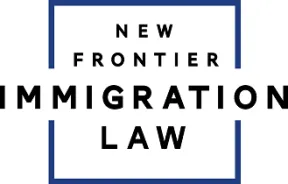Form I-130 is also known as a “Petition for Alien Relative” in immigration terms. When you file this form, you’re petitioning for the United States Citizenship and Immigration Services (USCIS) to recognize your relationship with a foreign relative.
Your ultimate goal when filing Form I-130 is to obtain a green card for your loved one.
Who Should File Form I-130?
Certain family members who have lawful status in the United States may file Form I-130. This form is part of the family-based green card process. Those who may file a Form I-130 include:
- Current U.S. residents
- Current green card holders
U.S. residents and green card holders may generally file a petition for alien relative (Form I-130) for:
- A parent
- A child
- A spouse
- A sibling
Relatives you generally can’t sponsor include:
- An aunt or uncle
- A niece or nephew
- A grandparent
- An adoptive parent or child (if the adoption occurred after the child was 16 years old)
- A spouse that USCIS determines has married you simply to gain a green card
The circumstances of these cases are not always straightforward, which is why it can be beneficial to speak with an attorney about your or your loved one’s case. They will inform you of whether you should file Form I-130.
What You Should Know About Family-Based Immigration
USCIS explains that it hopes to “promote family unity” through its family-based immigration policies. If you are a permanent resident in the United States, then U.S. immigration law looks favorably upon you. It may be easier for you to obtain a green card for your relatives than it would be if you weren’t a permanent resident.
There are many compelling reasons to help a relative gain legal permanent resident status. For instance, bringing a relative to the United States may:
- Improve your wellbeing as well as the wellbeing of your relative(s)
- Help you better care for an aging loved one
- Allow a loved one to help you care for your children
- Strengthen your family bonds
- Reduce worry that you have about loved ones being in a different country
- Spare loved ones from poverty, violence, and other harmful circumstances
You should take full advantage of the United States’ family-focused immigration policies. An attorney can help you help your loved ones.
For a free case review , call
What Benefits Come With Legal Permanent Resident Status?
If you are able to help a family member obtain legal permanent resident status through Form I-130, then you’ll help them obtain many life-changing benefits.
Permanent residents in the United States:
- Have protection under U.S. laws
- Can enjoy life in the United States without worrying about renewing visas, deportation, and other immigration-specific concerns
- Can work in any professional field that they desire, except those available only to U.S. citizens (such as high-security positions in the government)
Eventually, a lawful permanent resident may have access to certain government-issued benefits.
How Do You File Form I-130?
You can file Form I-130 with the appropriate USCIS field office as soon as possible. An attorney can help you identify the proper field office based on your geographic location.
The processing time for your petition for alien relative may depend on:
- The type of relative you’re petitioning for
- The specific state where you’re filing your petition (some states may be far busier than others)
- Other variables
Processing a Form I-130 can take months in some cases and years in others. Once you file your form, you should get a mailed notice that USCIS has received your petition. The notice should come as a Form I-797C, Notice of Action. The Notice of Action may:
- Simply confirm that USCIS has received your petition
- Request additional evidence for your petition
- Deny your petition based on a lack of certain information or evidence
The immigration process can be confusing and frustrating. Hiring an attorney may be an immense help for you and your loved ones.
Our immigration lawyers
How Can an Attorney Help With Your Form I-130?
Immigration issues are often stressful. Much is at stake, and the smallest of errors could derail your petition. By hiring an attorney, you will gain an experienced advisor to lead you through the process.
An immigration attorney can:
- Explain what you need to do: An attorney can review your circumstances and, in the most simple terms, explain the steps to take.
- Help you file your Form I-130: Your attorney may draft the petition for you, relying on information that you provide them.
- Gather necessary documentation: Your attorney can obtain all the information and paperwork to build a strong case.
- Deal with USCIS: Your lawyer may handle all petition-related communications with USCIS.
- Review all documentation: Your lawyer will ensure that all paperwork is accurate and complete.
Don’t try to handle your immigration case on your own. Let a lawyer lend a helping hand.
Complete a
Free Case Evaluation
Form now
Call New Frontier Immigration Law to Learn How We Can Help
New Frontier Immigration Law fights for those trying to get their loved ones to the United States. We understand U.S. immigration law and will help you complete your Form I-130 and the rest of your application.
Call New Frontier Immigration Law today for your free strategic session.





